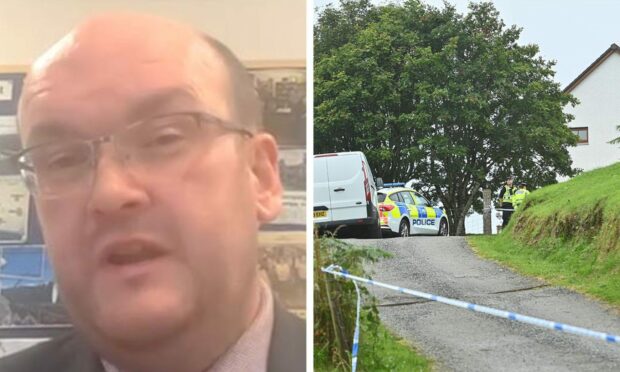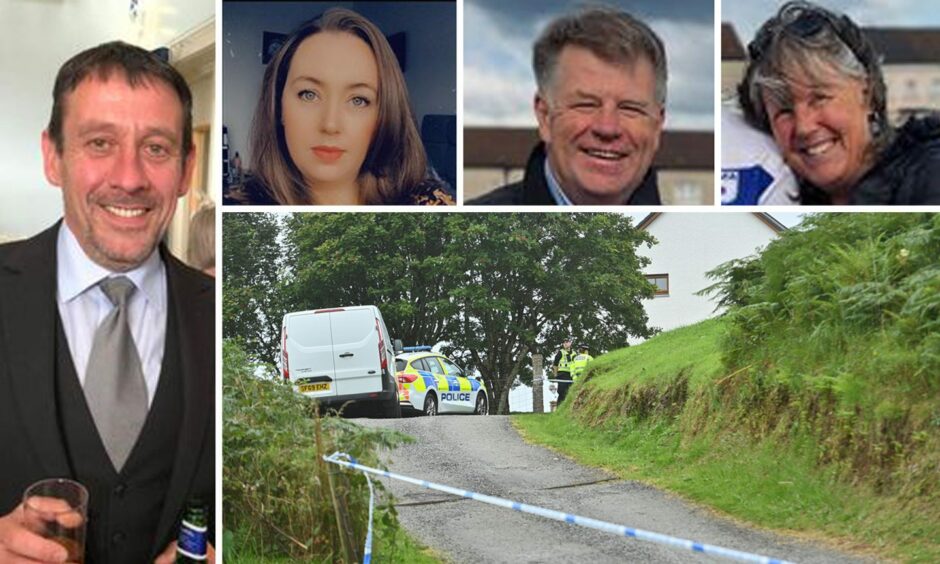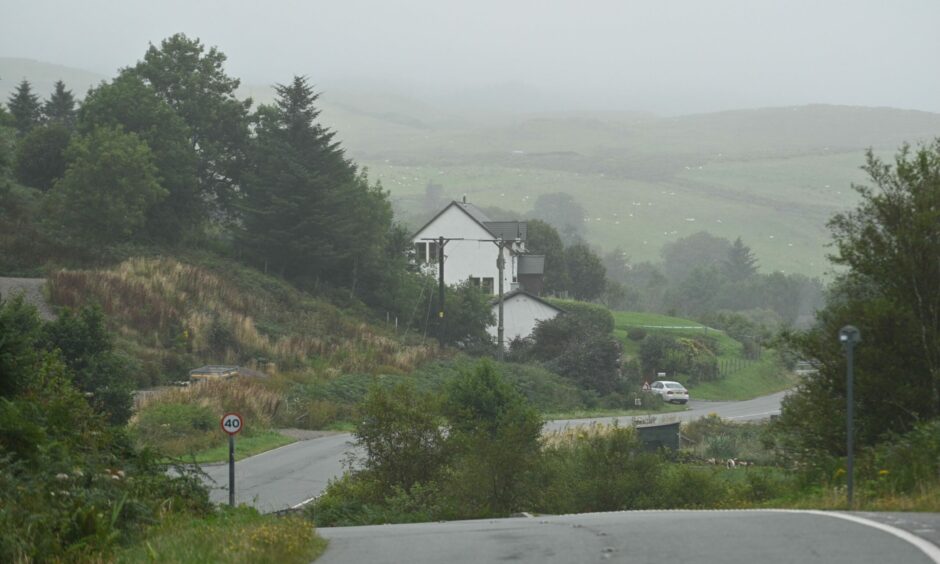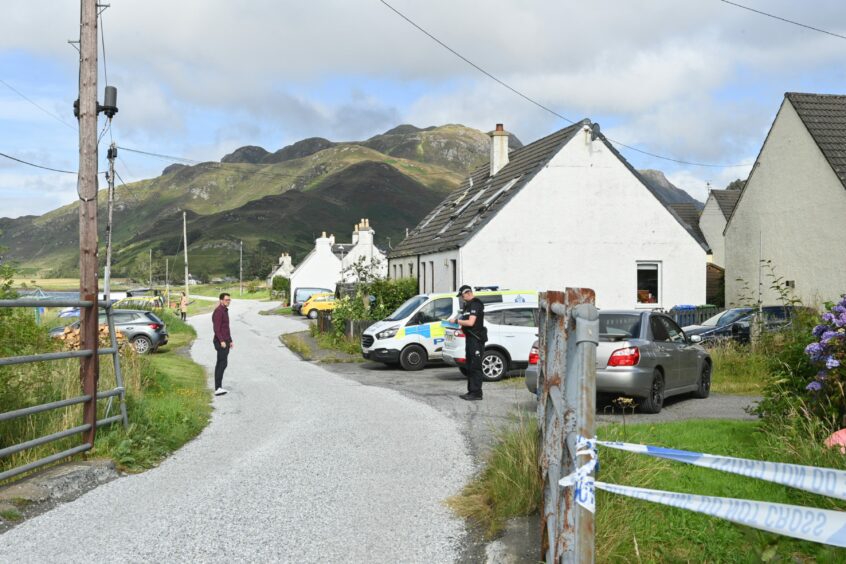A Skye church pastor has raised concern about the way individuals can “canvass” for references for a gun licence.
The Scottish Affairs Committee at Westminster is currently looking at firearms regulation in Scotland.
Gordon Matheson, pastor of Sleat and Strath Free Church of Scotland, gave evidence to MPs following the tragic shooting in Skye this year.
Finlay MacDonald, 39, from Tarskavaig, has been charged with murdering his brother-in-law John MacKinnon. He is also accused of attempting to murder his wife Rowena MacDonald, and local osteopath John Don MacKenzie and his wife Fay.
He made no plea or declaration during his appearances at Inverness Sheriff Court.
The day after the incident, Chief Superintendent Conrad Trickett said the gun used was licensed and registered to the shooter.
But Mr Matheson told MPs that MacDonald’s own family did not know he had a firearm.
Potential owners can ‘trawl’ for favourable references
He claimed the existing process means potential gun owners can trawl for “favourable references” to find support in the community.
Committee chairman Pete Wishart asked if there was ongoing concern about gun safety in the Skye community.
Mr Matheson – who conducted Mr MacKinnon’s funeral and said he was “personal friends” with the MacDonald family – indicated there was.
In terms of the gun licence that MacDonald lawfully held, he said: “In the community locally there has been some surprise around the application for a gun licence in this particular incident.
“And I know that is one of the Pirc (Police Investigation and Review Commissioner) inquiries.”
Watchdog Pirc routinely investigates whenever a firearm is discharged by police.
Under existing rules, when a person applies for a gun licence they must provide two references from the community that back they are fit to hold one.
Mr Matheson said “canvassing for favourable character references is something that people have found very difficult” to understand.
“At the moment you can trawl around as long as you like for people willing to give you a licence,” he said. “The onus is on those who declined to give a reference to get in touch with the authorities to raise a concern.”
He said that in rural communities, people are inclined to say “can you help me out” to get a good reference and instead of helping to protect the community, it was seen as supporting an individual.
‘If you don’t know they have a gun, how can you raise an issue?’
He described a situation where people would trawl around until they got a good reference for the licence, and when people had concerns they had no one to turn to.
He suggested the process could be improved would be to ask for family input into the application process.
He said: “Both of Mr MacDonald’s siblings, his brother and sister who live locally, didn’t know he was applying [for a licence] and didn’t know he had a firearm.
“That was quite shocking that they had no input and had not been asked.
“In this case here, his own family did not know he had a gun.
“If you don’t know they have a gun, how can you raise an issue?”
Suggested changes
Asked if GPs had the power to raise an issue, Mr Matheson said that he understood that they did, and would know who had a firearm in the community.
“The onus rests on the GP to make an assessment in cases of mental health or other illness,” he said.
Mr Matheson suggested that in future, applications should be allocated a reference number – so concerns could be raised at that early stage.
He also suggested community councils could be involved in the application process.
Calling for all applications to carry a unique reference number before an applicant seeks referees, he said the applicant should bear the full cost of the application.
Lasting impact on community
The Skye tragedy unfolded on August 10, taking place at three addresses in Tarskavaig, Teangue and Dornie in Wester Ross in relatively quick succession.
Mrs MacDonald was stabbed multiple times and subsequently airlifted to Queen Elizabeth Hospital.
But Mr Matheson, who was a member of the community liaison group set up in the aftermath of the incident, said the rural nature of the area meant that the initial response was slow – and that follow-up support for all those directly affected is lacking.
He told MPs: “On the day of the incident, Police Scotland’s response was an armed response unit from Inverness would be the first responder to a firearms incident.
“Obviously that unit did not arrive on time, and the incident was brought to unarmed local officers.”
It took two hours for the armed response unit to get to Skye, which he said was “too late”.
He also revealed there had been difficulties transferring Mrs MacDonald to hospital, as the air ambulance did not have enough range to get back to Glasgow – and had to refuel at a local airstrip.
He added: “There are issues around the subsequent trauma for Rowena meant while she had support, twice a week, while she was in Queen Elizabeth’s Hospital in Glasgow for four weeks.
“She has only had one face-to-face session since she came home, and that was when she happened to be readmitted to Raigmore Hospital.”
She has had no access to further help than that – fueling previous calls from locals including Councillor John Finlayson for more mental health support in the area.
Returning to trauma support, Mr Matheson continued: “Lynn-Anne, John’s wife – the man who was shot dead – is far beneath that.
“She has only managed one face-to-face appointment, as far as I understand, with a trauma counsellor the rest of her interactions have been over the phone. That has been very challenging.
Whole community is struggling
“There are 10 children in these two families all of whom are under the age of 20. The kids have been able to access education psychologists and have been well supported.
“The challenges facing these adults, and the wider family circle around them, have had very little in the way of support.”
He continued: “Across the community, there are multiple people struggling with what can be described as vicarious trauma.
“Because we are such a close-knit community and everybody has a connection with these families either through school or just work in the community a lot of people have picked up trauma, as you do with traumatic experiences and are carrying that, even the kids in school.
“My own daughter is a little bit scared to sleep in the room closest to the front door.”





Conversation